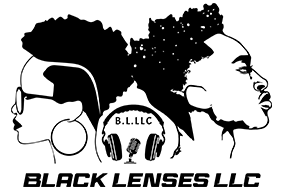Carrying fashion’s torch: Black women style stars from slavery to the present lighting the way to the future
From the days when Elizabeth Keckley served as first lady Mary Todd Lincoln’s personal dressmaker, to Michelle Obama’s career-making impact on the niche designers she wears today, style has been a complex platform for African-American women in history. The celebration of Women’s History Month in March prompts a need for reflection on the relationship between black women and the mainstream fashion world, a relationship that has been contentious throughout the centuries. At the start of American history, black women sought to fit certain beauty ideals. Then we proudly proclaimed, “black is beautiful!” These trials and testimonies have often been carried out through grooming and clothes.
The interchange between black women and the dominant aesthetics we have struggled with has so many realms — ranging from hair and make-up to photography and entrepreneurship. Yet there is one realm for black women that has been particularly empowering: creating clothing.
Although the fashion industry has not fully embraced black women today — the magazines all but ignore African-American readers and black models still continue to struggle harder than their white counterparts for jobs —some have been able to use clothing design as a tool of economic empowerment, political influence, and social authority.
Dressmaking in particular has been a lucrative niche for African-American women, dating back to slavery. In her book Threads of Time, Rosemary E. Reed Miller writes: “A special talent for needlework in a black woman added to her value as a slave. … In many cases, the slave woman was able not only to hire herself out, but also keep a good percentage of the money for her own use.” She lists Elizabeth Keckley as an example.
Born into slavery in 1818, Keckley used her talent for sewing to ultimately buy her freedom and that of her son with money she made from her earnings. A free woman 10 years before the Emancipation Proclamation, Keckley established a thriving dressmaking business in Washington, D.C. that ultimately led to a job as Mrs. Lincoln’s personal modiste. First lady Lincoln came to call Keckley “my best living friend,” and the friendship obviously had its privileges. Keckley is said to have used her influence to get Sojourner Truth a meeting with President Lincoln. She eventually wrote a bestselling book about her time in the White House.
But we don’t have to look that far back to find black female designers making a significant impact. In the early 1920s, dressmaker Francis Criss reportedly designed pieces for Sunset Boulevard star Gloria Swanson during her silent film heyday. Fellow designer Zelda Wynn Valdes made a name for herself designing curve-loving looks for Dorothy Dandridge, Josephine Baker and Gladys Knight, among other great entertainers.
Hugh Hefner tapped Wynn Valdes to design the original Playboy bunny costume. Yes, one of the most iconic looks of all time was designed by an African-American woman.
Likewise, Ann Lowe created classic looks for American royalty including Rockefellers and Vanderbilts. In 1946, Lowe made the dress actress Olivia de Havilland accepted her Best Actress Oscar in. In 1953, she designed the gown Jacqueline Bouvier Kennedy wore to wed the future President John F. Kennedy. She went on to open Ann Lowe Originals in the luxury Manhattan department store Saks Fifth Avenue in the 1960s.
Meanwhile, two years after Lowe created Kennedy’s silk taffeta wedding gown — and was credited only as a “colored woman dressmaker” by that first lady — a seamstress named Rosa Parks sparked the Montgomery Bus Boycott.
When Parks refused to give up her seat to a white passenger in compliance with the racist segregationist laws of the time, her brave act of civil disobedience led to a yearlong strike against the Montgomery, Alabama bus system — and a Supreme Court ruling that bus segregation laws were unconstitutional.
Parks, a seamstress by trade, followed in a long line of black female dressmakers with political ties who were also trailblazers.
Designer Tracy Reese is the best-known heiress to the legacy of these breakthrough African-American women couturiers. For the past three decades, Reese has steadily built her brand to stand for fresh, ladylike sophistication. In the process she has earned high-placed fans including most-famously first lady Michelle Obama (continuing the political tradition). She also has a host of other celebrity customers including Halle Berry, Britney Spears and Leighton Meester.
We wish to inform readers that the beforementioned content is not our own, and neither do we claim it to be as such. All credit goes to https://thegrio.com/ for producing the original content. They have our endorsement.




